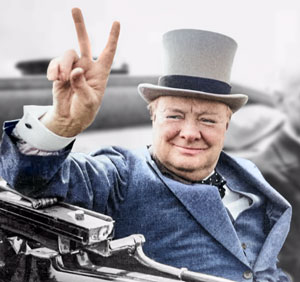Public officials for the City of Youngsville have had yet another open meetings violation lodged against them. But this time, they have admitted wrongdoing. Join us as we explore the city’s history of violations and what has been done to remedy the reoccurring issues.
Open Meetings Law
Article XII, Section 3 of the Louisiana Constitution mandates:
No person shall be denied the right to observe the deliberations of public bodies and examine public documents, except in cases established by law.
There is an obvious reason for this Constitutional provision, unlike some recently proposed amendments you may have seen on your ballot. In essence, the government is supposed to serve the public. And how else would we be able to determine if they are properly performing their duties if they are allowed to conduct public business in private without meetings being observed by the public or public records subject to inspection?
Our Legislature has established a public policy for open meetings in conjunction with the Constitutional mandate. It can be found in Louisiana Revised Statutes 42:12 and reads:
It is essential to the maintenance of a democratic society that public business be performed in an open and public manner and that the citizens be advised of and aware of the performance of public officials and the deliberations and decisions that go into the making of public policy.
Open meetings law only applies to “public bodies” as defined in state statute, not individual elected officers or even our legislature. Furthermore, there can be no “meeting” unless a quorum is present. But anywhere you have a quorum present, and business is transacted, the public MUST HAVE THE BENEFIT OF OBSERVING AND ENGAGING IN THE DISCUSSION.
A whole body of law also deals with what has come to be known as a “walking quorum.” With technology being used more and more frequently in government, such as e-mail chains and group text messages, this type of violation is occurring much more frequently. You can find many examples of it by reviewing communications between government officials who serve as part of a body. You just have to look for it.
A history of violations.
This summarizes some of the important parts of the open meetings law. There are many more parts and intricacies, but it is vital to understand the basics before reading further. Believe it or not, they are relatively straightforward.
We would like to believe that most violations of open meeting laws are the result of ignorance or human error. After all, our elected officials are supposed to be held (and hold themselves) to a higher standard. At least, that is what we hear repeated when a member of one faction commits an act frowned upon by another faction. But that is not always the case.
It starts with Rickey Boudreaux.
Rickey Boudreaux claimed that the Youngsville City Council was secretly meeting to strategize how to force him out of his elected seat. At least one city official confirmed that. He had even called the district attorney, Don Landry, out of concern and inquired whether it would be something his office would even bother looking into. After all, the District Attorney and the Attorney General are tasked with upholding open meeting laws. Other allegations that have surfaced involve regular meetings of the City Council, but this is not something we have looked into in depth. If it occurs, it would be yet another violation; however, who will do anything about it?
Then, there were alleged open meetings violations that proceeded the appointment of Cody Louviere as Interim Chief of Police. Other alleged open meetings violations over the appointment of Jamie Creed to the position of Interim Council Member. This might explain significant topics impacting the City of Youngsville, passing mostly unanimously with little conversation during the public meeting. There was also a series of July 2024 open meetings complaints filed by Citizens for a New Louisiana for failing to provide for voting viva voce and not allowing public comment before action on an item. The City of Youngsville has since returned to voting in accordance with the law.
Youngsville Municipal Police Civil Service Board.
Other complaints were filed in June and July 2024. These dealt with the conduct of the Youngsville Municipal Police Civil Service Board. The first complaint alleged violations, such as changing the agenda within twenty-four hours of the meetings, not providing reasonable specificity regarding the nature of the agenda items, and not allowing public comment. The second complaint alleged that a quorum was convened outside the public meeting wherein the Board discussed matters. Both complaints involved the June 26, 2024 meeting.
It is undisputed that the Board’s agenda was changed within twenty-four hours. In response to the complaint, Board Chairman Benjamin Langlinais failed to address this. Instead, he focused solely on failing to allow for “public comment” and convening a quorum outside a “public meeting.”
The board responds.
In his initial response dated July 31, 2024, Langlinais falsely stated that “the complainant was present [at the June 26, 2024 meeting] and did not ask to address the Board at any time.” First, it is not the responsibility of the attendee of a meeting to ask to be recognized for comment. The Board Chairman is responsible for ensuring attendees are afforded an opportunity before voting on an agenda item. This statement is nothing more than a fabrication. How do we know? Because the complainant addressed the Board, and the entire encounter was recorded.
In fact, not only was the encounter recorded. It was recorded in plain sight. It was recorded with multiple witnesses present. Members of the Board even allegedly complained about the recording taking place. Let that sink in for a second.
Additionally, in another response by Langlinais, also dated July 31, 2024, he states that right after the Board motion was approved, the complainant “…who was in the audience, questioned whether any citizen living in-state or out of state could file a complaint.” So again, according to Langlinais, the complainant did address the Board. He just didn’t ask to? Langlinais still seems not to grasp the fundamental issue of the complainant not being allowed to address the Board until after the Board had already voted. That is a violation of the open meetings law in and of itself.
Admissions of guilt.
Langlinais then admits to one of the open meeting violations. Langlinais wrote: “As soon as the meeting adjourned, as Chairman of the Board, I inquired to the availability of which member of the Board could do the investigation. Board member Tracy Girard stated he could take it on.” Langlinais goes on: “I can assure you there was no willful intent by any of the Board members to withhold or violate anyone’s rights.” We take Langlinais at his word regarding “intent,” but it is worth mentioning that Langlinais has served on the Board since February of 2013. That’s over ten years! All of this clearly illustrates an ignorance of the open meeting laws. As the chairman, he was supposed to ensure the law was abided by, but instead, he had little concern for the rights of the public.
Additionally, the Board had communicated about this matter outside of the meeting. If not, how did the Board know what they were voting on? The agenda only provided the following topic: “Board members to investigate possible prohibited political activity.” Before the vote, there was no discussion regarding who filed the complaint, when the complaint was filed, who the complaint was filed against, etc. The agenda item was simply read, and in rapid succession, a unanimous vote was made to investigate. Only after the votes were cast did the complainant even have an opportunity to address the Board’s quick action.
Does this sound familiar?
It is the same pace with little discussion followed by unanimous votes we have witnessed from the City Council on multiple occasions. The only difference is that the City Council will have a packet to review before the meeting. However, according to Board Secretary Laurie Segura, there was no communication or dissemination of information concerning the complaint (alleged prohibited political activities). There wasn’t even a record of any complaint(s) being filed!
Langlinais admits the shortcomings of the Board again in an August 5, 2024 letter wherein he indicates the Board will be implementing new sign-in procedures because “…it may not have been understood that the individuals of the community in attendance did have the right and opportunity to public comment.” What part is hard to understand?
LARS 42:14(D) “…shall allow a public comment period at any point in the meeting prior to action on an agenda item upon which a vote is to be taken.”
A Lack of Accountability
Some people would claim that if we just educate public officials, these violations wouldn’t occur. Even Langlinais pled ignorance when he stated, “…it may not have been understood.” Who is going to teach them? And if someone desires to hold a public position but lacks the motivation to educate themselves about what they are responsible for, can they really be helped? Let’s also not forget that this Board and the Youngsville City Council have lawyers who are regularly present and participate in the meetings. So, are they just as ignorant? Or perhaps they are just as complicit in the misconduct? That would explain the ease of picking up the phone and calling the District Attorney to see if he is actually going to do anything about a violation.
At the most recent Youngsville Municipal Police Civil Service Board, held on December 11, 2024, public comment was elicited at multiple intervals, so perhaps there is some hope of educating some officials. However, despite public comment being requested, the Board actually failed in another way. They failed to take a viva voce vote on several items, accepting the motion and second from the two-man quorum as well as votes in support.
If they’d just read the Constitution!
Those who continue to argue that “education” is needed are the same ones who hold up a copy of the Constitution while claiming that if politicians would just read, understand, and abide by it, we wouldn’t be in the predicament we are in. Over the past several decades, has doing that action moved the needle toward a more responsible government? No. And even if the document were read and understood today, it exists at the whim of nine unelected individuals wearing black robes under our present nationalist system, a remnant of a once strong confederated republic. The meaning of each word is changed with the stroke of a pen. H.L. Mencken may have said it best: “A judge is a law student who marks his own examination papers.”
What we have is an accountability problem. According to the minutes of the October 31, 2024, meeting, Board Attorney Danny Landry reported: “The Attorney General’s Office has advised that no consequential events occurred. Therefore, no action will be taken against the board.” The Attorney General and the District Attorney are the elected officials responsible for enforcing the open meetings law. The law also allows a private citizen to file suit to enforce the provisions, but why should regular citizens have to pay for a lawsuit when we have elected officials with a duty to ensure the provisions are followed?
This issue frustrated many people when the District Attorney initially refused to involve himself in the challenges to Rickey Boudreaux and John Trahan’s candidacy earlier this year. That is their job as elected officials. And this is the very reason people lose trust in our institutions: an endless recitation of excuses for not doing what they are obligated to do.
More to Come in Youngsville
Despite the recent election to select a permanent Chief of Police, we suspect this will not end the drama in Youngsville. The Board recently declined to investigate several civil service complaints. They even failed to notify the complainant of their failure to take action. Two complaints dealt with allegations of prohibited political activities by Board member Tracy Girard and Board Secretary Laurie Segura.
Interestingly, in June 2024, the Board elected to investigate two “anonymous” complaints of prohibited political activities by Youngsville Police Officers Brian Baumgartner and Hannah Gentry. Those “complaints” were received by Board Secretary Segura. They were not in writing, nor did Segura document the complaints or ascertain the complainant’s identity to ensure they had standing even to lodge a complaint in accordance with Louisiana law. Yet the Board accepted them and conducted an investigation. That occurred at the June 26, 2024, meeting, where the Board also affirmed their commitment and obligation to receive and investigate complaints. Board Secretary Segura proudly asserted that the law states that they “shall” investigate.
The Board is clearly not acting in the best interest of the public. They appear to be arbitrarily selecting which complaints will be heard and investigated and which they choose to ignore. Whether our public officials, elected or appointed, are held to a higher standard ultimately rests with us. Apathy is a disease that has invaded the City of Youngsville. Comfort gives rise to complacency. That is clearly reflected in the 19.1% turnout for the December 7, 2024, election to select a Councilman and a Chief of Police.
“One of the penalties for refusing to participate in politics is that you end up being governed by your inferiors.” – Plato
###









